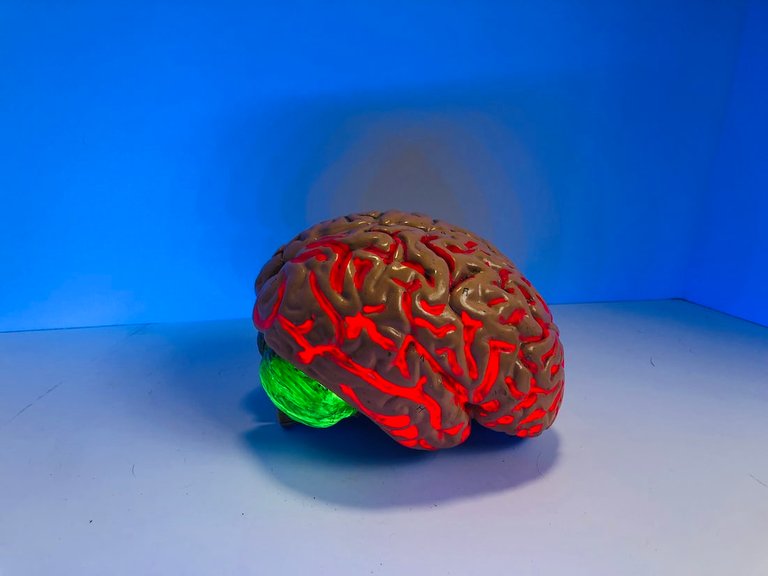Brain Tumor: What is it and How to get Help
Brain tumors are uncommon and most are benign. However, they can be frightening if you learn that someone you know has been diagnosed with one. These conditions are often referred to as a brain tumor. There are many types of brain tumors, but the majority of them are relatively rare and occur primarily in adults over the age of 50 years old.
They most often start in cells that make up the outer layer of the brain known as the meninges. Improper smoking, drinking alcohol, or using other drugs may increase your risk of developing a brain tumor.
Improper use of headgear designed for sports activities may also increase your risk but not nearly to the same degree as these other actions. The causes of brain tumors aren’t fully understood, but it is known that some factors may play a role in their development including things like exposure to certain substances (like pesticides or chemicals), inherited genetic tendencies, and aging. If you think you may have been exposed to something that might have caused a brain tumor, consult with your doctor immediately for further testing.
What is a Brain Tumor?

A brain tumor is a growth or an abnormal mass of cells located inside the brain. They may be benign, but some are thought to be malignant – meaning they are likely to become cancerous if left untreated. Brain tumors may occur in one area of the brain, or may be located in multiple areas.
They can be benign (not cancerous) or malignant (cancerous). Malignant tumors are very rare, accounting for only 5% of all brain tumors. Brain tumors are most often benign. Benign means “not causing harm” and refers to the tumor not causing any symptoms or signs of a problem. Brain tumors can be non-cancerous or slow-growing cancerous tumors. A tumor that is non-cancerous is less dangerous than a cancerous tumor but is still a medical concern. Most benign tumors are benign because they are slow-growing.
Causes of Brain Tumors
There are almost as many theories as there are brain tumors, but the majority involve genetic weaknesses or abnormalities in the cells of the brain. This can cause a growth of cells at a very early age, or in a very small part of the brain. However, there are some causes that do not involve genetic weaknesses or abnormalities in the cells of the brain.
Lifestyle factors like smoking, drinking alcohol, or using other drugs may increase your risk of developing a brain tumor. Improper use of headgear designed for sports activities may also increase your risk but not nearly to the same degree as these other actions. Risk factors for brain tumors in children include exposure to pesticides or chemicals, having a parent or sibling who has had a brain tumor, and having an unusual or rare tumor.
Types of Brain Tumors
The most common type of brain tumor is a non-cancerous tumor called an epilepsy tumor. These are usually benign and located in the part of the brain that controls movement. In descending order of frequency, the most common types of brain tumors are

Radiation or chemo-therapy brain tumors: These are tumors that have been caused by exposure to high levels of radiation or certain anti-cancer medications. They may be the result of a genetic abnormality or some other factor.
Immune brain tumors:
These are caused by an abnormal response to the body’s own cells, called antibodies.
Environmental brain tumors:
These are caused by exposure to toxins or other things that cause cancer in other parts of the body.
Cranial/shaft brain tumors:
These are found at the base of the brain and are most often benign. They are less common than tumors in the cerebral hemispheres.
How to know if you have a brain tumor
Brain tumors often don’t cause symptoms until they are quite large. If you have a family member who has been diagnosed with a brain tumor, you may be able to identify symptoms that indicate it may be a possibility for you as well.
Symptoms like headaches, changes in personality, and changes in thinking ability may suggest the possibility of a brain tumor. If you have a family member who has been diagnosed with a brain tumor, you may want to consider having your doctor conduct an evaluation for brain tumors.
They can perform a series of tests to detect the presence of a tumor. Your doctor may order routine blood tests to check for certain genetic abnormalities that may indicate a higher risk of developing a brain tumor.
They may also order a CT scan or an MRI brain scan to look for tumor signs. In some cases, your doctor may recommend that you be evaluated for a brain tumor by a specialized medical team. This may include a neuro-oncologist, who specializes in treating cancer patients and those with brain tumors.
Diagnosing a Brain Tumor: The 5 phases of evaluation
When evaluating a potential brain tumor, there are five phases that typically occur in order.
- History/Risk factors:
This is when your doctor will ask you questions to gather information about your health and family history.
This may include questions about your medical history and family history. In addition, they may perform some type of screening test such as a blood test, an imaging test, or an assessment of your thinking ability.
- Rule-Out Tests:
These tests are used to rule out other possible causes for symptoms. They may include tests such as a CT scan or an MRI.
- Diagnosis:
During this phase, your doctor will determine whether you have a tumor. This is often done through a combination of data gathered from your medical history and physical exam, and from tests like CT scans and MRIs.
- Treatment Options:
Your doctor will consider how aggressive the treatment will be, as well as how quickly it must be done. This can be an invasive procedure such as surgery.
- Follow-up:
This is the time when you and your doctor will discuss what happened during treatment and the impact on your life.
Treatment options for brain tumors
Brain tumors are often a death sentence, but when they are discovered early, they can often be treated with surgery and/or radiation. Because of this, they are often managed with very aggressive treatment plans. Many people who are in this situation are told they will live a few months or possibly a few years after diagnosis.
Surgery can remove the tumor and may include a variety of procedures such as an open-brain biopsy, minimally invasive burr-hole (hole) neurosurgery, or an endoscopic neurosurgery. Radiation is used to treat many different types of cancer, including brain tumors.
There are two types of radiation: External- beam radiation and brachytherapy. External-beam radiation uses high-energy x-rays to target the tumor, while brachytherapy uses a tiny radioactive source that is placed directly inside the tumor.
Concluding thoughts
Brain tumors are rare, but when they do occur, they can be incredibly dangerous and life-altering. Fortunately, they are much less common than other types of cancers, making up only 5% of all brain tumors.
They can be detected early if you have a history of risk factors or if you experience symptoms, and they can often be treated effectively with surgery and/or radiation.
• Links Consulted
(1). https://www.healthline.com/health/brain-tumor
(2). https://my.clevelandclinic.org/health/diseases/6149-brain-cancer-brain-tumor
(3). https://www.hopkinsmedicine.org/health/conditions-and-diseases/brain-tumor
This is one of the causes of death in children when it is not detected in time, thanks for uploading this information about Brain Tumor.
Thank you for stopping by
Epilepsy tumor is very dangerous because they can kill just like an accident. I'm very scared of that.
Yea. It is capable of killing
Congratulations @royalevidence! You have completed the following achievement on the Hive blockchain and have been rewarded with new badge(s):
Your next target is to reach 500 replies.
You can view your badges on your board and compare yourself to others in the Ranking
If you no longer want to receive notifications, reply to this comment with the word
STOPSupport the HiveBuzz project. Vote for our proposal!
Thank you
Thanks for your contribution to the STEMsocial community. Feel free to join us on discord to get to know the rest of us!
Please consider delegating to the @stemsocial account (85% of the curation rewards are returned).
Thanks for including @stemsocial as a beneficiary, which gives you stronger support.
Thank you